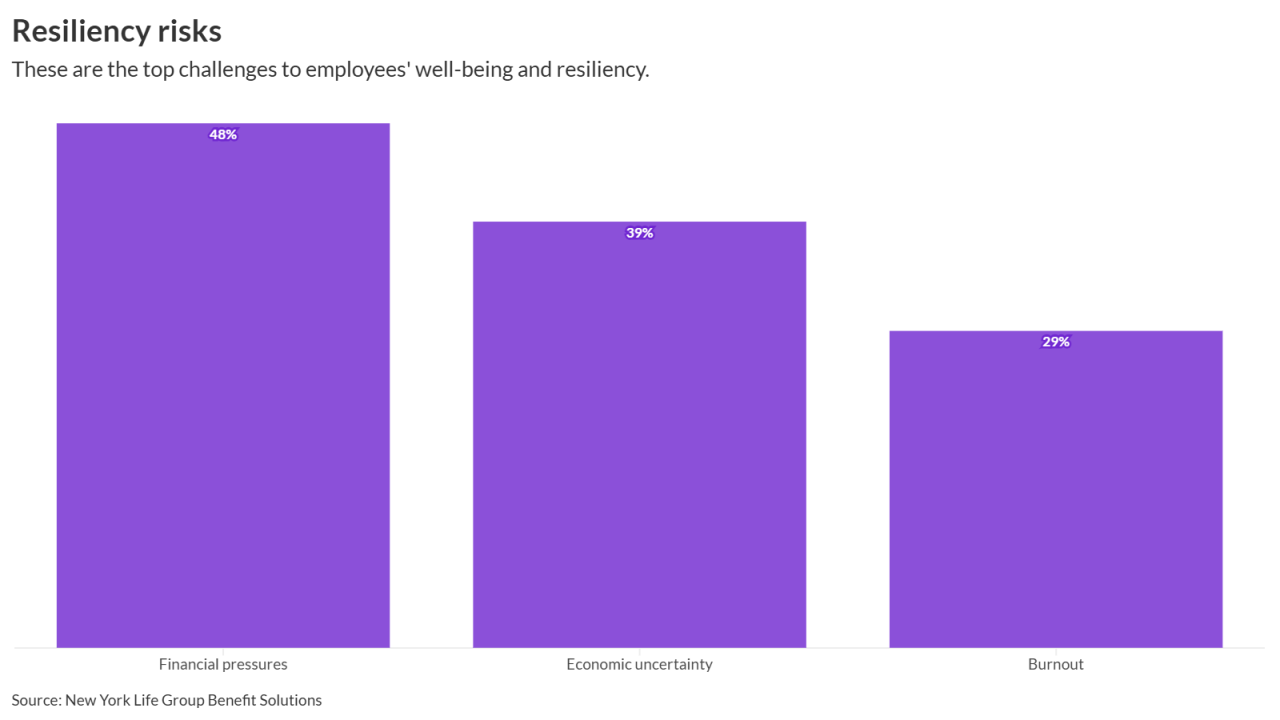Towers Watson
Here are the key thoughts employers of any size should consider when deciding whether to shift to a defined contribution approach to health care benefits:
Why should larger employers consider offering health insurance through a private exchange?
For many years, large employers have turned to consumer directed health care to bend down their cost curve. However, those practices have not worked as well as they had initially hoped, says Bryce Williams, managing director of exchange solutions at Towers Watson. We believe that this new private exchange wave is an opportunity for employers to consider a model that gets more employees skin in the game and gets all the best practices of different firms to help them for the first time get cost control."
In addition, very large employers are especially sensitive to taxation, fees and penalties within the ACA because they employ so many people. The biggest tax on the horizon is the excise or Cadillac tax, which goes into effect in 2018.
For many of these employers, if they do nothing between now and 2018, they will fall into that Cadillac tax. So they need to start changing how they deliver benefits now," advises Williams.
If employers have double or triple health care cost growth in 2018, they would have to pay big taxes for benefit levels over and above whats allowed by the health care law.
Are the private exchanges a meaningful option for small employers as well?
Most employers, regardless of size, consider three lines of criteria when evaluating their benefits program:
- Is it controlling cost?
- Does it effectively engage and empower employees?
- Does the plan solution offer administrative relief?
The advantage of using a private exchange to deliver benefits for a small employer is they have access to a Fortune 500 palate of offerings and tools that normally wouldnt be available to a company with limited administrative resources.
Private exchanges enable small employers to "easily and conveniently offer more and punch a little above their weight from a benefits plan perspective. Typically, a small company would offer a simple medical plan, maybe dental and few voluntary products, which is pretty robust historically. With a private exchange, a small organization can now offer 15 different categories of benefits ranging from not only the medical, dental, and vision staples to pet insurance, legal plans, and telemedicine services, auto and home insurance and everything in between, says Liazon co-founder and CEO, Ashok Subramanian.
With these exchanges, small employers can offer a myriad of benefit options that increase their ability to recruit and retain top talent without adding to their HR staff.
Can private exchanges replace outsourcing efforts?
Many large employers especially have turned to outsourcing benefits administration in the past 15 years, however, Williams explains that this tactic too has failed.
By outsourcing their benefits, they didnt outsource the actual problem, which was health care cost explosion, says Williams. He believes employers will look to private exchanges to continue meeting demands to do more with less and lower costs.
Wont all the added carrier and plan choices overload participants?
Towers Watson currently has 106 carriers in their Medicare exchange, which Williams admits, "sounds like overwhelming choice. But its actually the contrary. By having a large amount of carriers, youre turning on micro market competition.
So by driving competition at the local level for any given zip code, the exchanges help employers "build a patchwork quilt of the strongest networks at the county level, Williams adds. This feature helps employers to lower costs across their geographic population when they have employees and retirees in more than one state.
Will the public exchanges be an attractive option for small employers in 2015?
The Obama administration has delayed small businesses from entering the public exchanges until 2015 due to technical glitches on their platforms. However, these employers arent too broken up about being left out of public exchanges.
The reality is that a lot of employers dont have a lot of faith and trust in the options that are available today and in the future from the public exchanges, says Subramanian.
Can private exchanges keep employers in the benefits game?
According to Subramanian, 52% of employers have admitted defeat and dumped their health insurance offerings. The big question then is: Will that trend abate with the advent of private exchanges?
Williams believes so, based on results from their Medicare exchanges.
In 1980, 64% of American corporations provided retiree health care, but in 2007, that number had fallen to 22%. However, as of last year, 24.5% of employers offered retiree health insurance, so more companies are staying and even returning to the game with a defined contribution approach because they didnt have to drop coverage due to huge surprise price increases, explains Williams, who is also the CEO of Extend Health, a Medicare exchange company purchased by Towers Watson in 2009.
Whether private exchanges will help solve the major problems plan sponsors face remains to be seen. But the defined contribution approach offers employers another option in managing their benefits, which should be considered closely.




